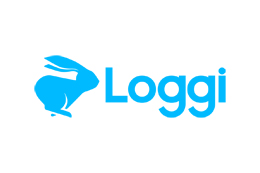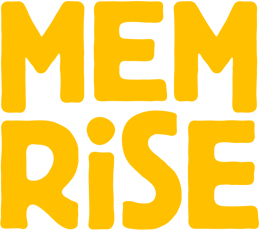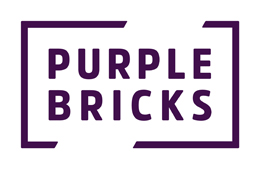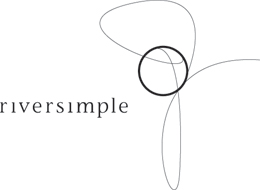If At First You Don’t Succeed award
People’s Choice winner: Peter Janes, ShieldPay

Launched by Peter Janes in 2012, London start-up Shopa was a great idea: make
shopping a social media activity and reward users with discounts on items by posting
recommendations to their friends. A great idea – good enough to attract £6.5 million
in funding in 2015 – but a total disaster. A year after raising the financing, Shopa was
gone, a ‘Frankenstein’ crippled by conflicting management objectives and pressure to generate revenue fast - which diverted the
company from its mission. Janes resolved to do things differently and founded ShieldPay in 2016 to provide a new payment solution
to solve the £88 billion fraud problem in the peer-to-peer payments industry.
The instant digital escrow solution mitigates the risk of fraud by verifying the identity of all parties, holding funds securely and
only releasing them when all sides agree to proceed. All industry cynicism regarding the new player in the market vanished when
ShieldPay announced a global partnership with financial services giant Visa in December 2018 to provide marketplaces and bank
customers across the globe with a new secure payment option that protects them from fraudsters.
ShieldPay has since had several more significant successes, leading to a Series A funding round and a market-leading position in
peer-to-peer marketplace payment security.
So, if at first you don’t succeed… try, try and try again – but only if you are prepared to learn from failure and do it differently.
www.shieldpay.com
Judges’ Choice winner: Fabien Mendez, Loggi

In 2013 Fabien Mendez co-founded GoJames, a Brazilian premium taxi service
for business executives, one year before Uber started operating in Brazil. It failed
comprehensively, bedevilled by regulatory problems, seizures of drivers’ cars and –
following Uber’s entry into Brazil – inability to compete with the global giant.
Noticing the massive influx of motorcycles onto the streets of São Paulo, Mendez wondered if there was a new business opportunity
here. The city is notorious for its traffic jams, making transport of light goods over medium distances much quicker and cheaper by
motorbike than by car. Moreover, Mendez realised that the essential processes in his previous business model – payment, tracking
and scheduling – could be optimised in the new one.
Loggi (it hints at “logistics”) was born, and is revolutionising the courier industry in Brazil with a delivery logistics platform that
matches motorcycle couriers with businesses and individuals. Launched as a document delivery service in 2014, it has expanded
rapidly to manage a wide range of delivery options, from takeaway food to daily deliveries for Latin America’s largest e-commerce
companies, such as Dafiti and MercadoLibre. Currently making three million deliveries per month across 73 cities, and with more
than 25,000 motorcycle and van drivers in its fleet, its success has reportedly pushed its valuation above $1billion.
GoJames may have failed to hit the ground running, but Loggi has been little short of a runaway success.
www.loggi.com
Masters of Reinvention award
People’s Choice winner: Memrise

Founded in 2010 by former memory grandmaster Ed Cooke, Ben Whately and Greg Detre, Memrise began life as a website for learning any fact-based topic, underpinned by a science-based learning methodology, with users able to create their own courses. The business grew organically for a few years, but around 2015 the founders started to detect significant shifts in customer behaviour. Spotting a big opportunity, they decided to focus instead on a new territory: developing a learning system to learn foreign language fast and efficiently. It was a brave call – the online learning space is ultra-competitive – but Cooke and Whately were convinced that the incumbents fundamentally didn’t understand how people learn languages – which meant they weren’t doing it effectively.
They also decided to create their own content, rather than relying on the Memrise community to create language courses: their second reinvention. The third reinvention concerned the platform. The team realised that most of their users were using mobile devices, so they took the plunge, cut web development and focused completely on the mobile experience. And in 2015 the company ran a successful kickstarter campaign that led to the creation of their own real-life content and the world’s first ‘video dictionary’; since then they have continued to develop a video-clip learning feature that further sets them apart from their competitors.
Today Memrise has over 40 million users around the world. On their path to product excellence, the founders had the courage not merely to reinvent the product multiple times, but to cannibalise it completely. Today the only ones eating their words are the doubters.
www.memrise.com
Judges’ Choice winner: Estonia’s e-Government Transformation

Estonia is a small Baltic nation with a population of only 1.3 million and a land mass of just 4 million hectares; more than half of the country is forest. Under Soviet Union occupation Estonia suffered massive environmental damage, falling living standards, heavy militarisation and a complete stifling of civil society. In gaining independence in 1991, Estonia had no choice but to innovate to survive.
And how it has innovated. Taking its cue from the private sector – Skype, for example, was created by Estonian software engineers in 2003 – the government has quickly taken its citizens digital. While only half of the country had a telephone line in 1991, by 1997 97% of schools were online; a free government WiFi network covering urban areas was in place by 2002; and e-voting was introduced in 2005. But that was just the beginning…
The government has since issued every Estonian a digital identity, giving citizens online access to public services, such as health and education services, and the ability to interface with commercial organisations; for example, to access financial services (online-banking). And in 2015 Estonia became the first country to offer e-residency, allowing foreign nationals to become residents online without even needing to visit the country in person. The vision is to attract investors, entrepreneurs, students and others in order to encourage them to contribute to the Estonian digital economy.
In short, Estonia has completely reinvented itself as a groundbreaking global innovator. There are start-up companies – and then, it seems, there are start-up countries.
www.e-estonia.com
Best Beats First award
People’s Choice winner: Purplebricks

Indisputably the best-known brand in the UK online estate agency sector, Purplebricks is also the dominant player by sales volume, selling over £10 billion worth of property since its inception by leveraging state-of-the-art technology and a dedicated team of local property experts.
But it was far from the first estate agency to disrupt the commission-based, bricks-and-mortar incumbents through an online-only, fixed-fee model – pioneers such as eMoov, Tepilo, Hatched and HouseSimple were much quicker to market. In fact, Purplebricks was only launched in 2014, more than two years after its rivals. Astonishingly, one of the main factors that enabled it to beat the first-movers is that the delayed entry was intentional: the founders spent those two years-plus conducting in-depth market research into consumer preferences, using the data collected to develop a superior hybrid model prior to launch.
The other main factor behind its success was its ultra-ambitious – not to say brave – scaling strategy, raising an £8 million war chest a few months after launch, then £25 million via an IPO on the AIM after only 19 months of operations. The success that followed was due in large part to efficient allocation of this capital, with around £5 million of the initial funding spent on a TV ad campaign for a then-unknown company that catapulted the firm to market prominence.
It was not the first mover by a long way, but – with a market share of almost 70% of online sales – Purplebricks is certainly the biggest non-bricks-and-mortar mover of bricks-and-mortar in the UK market today.
www.purplebricks.co.uk
Judges’ Choice winner: Xero

Accounting software is hardly new. In fact, desktop accounting software has been around practically as long as personal computers, dominated by industry giants like Sage, Oracle and SAP. And the first ‘proto-cloud’ applications go back at least as far as the 1990s, when telecoms companies began offering virtual private network services. Given the obvious product-market fit, it is perhaps surprising that the large-enterprise software providers weren’t the first to develop accounting software in the cloud. Instead, it was left to New Zealand firm Xero. The company saw a massive opportunity in supporting the needs of SMEs with cloud-based accounting software. Xero stole a march on the giants with the first cloud-based accounting solution in 2006. Born in the cloud, Xero is a beautiful, easy-to-use platform targeted specifically at small businesses and their advisors.
Sage, Oracle, SAP and their ilk still dominate the large-enterprise market. But, to date, Xero has racked up more than 1.8 million subscribers in over 180 countries, with 463,000 of those in the UK. The company has also built a thriving ecosystem of 700+ third-party apps and 200+ connections to banks and financial service providers, while garnering awards by the bucketful along the way. Of course, it is still David to the many Goliaths of the software-as-a-service (SaaS) industry. Then again, look how it ended for Goliath…
www.xero.com
George Bernard Shaw Unreasonable Person award
People’s Choice and Judges’ Choice winner: Hugo Spowers, Riversimple

Former Formula Three racing driver and engineer Hugo Spowers quit motorsport for environmental reasons, driven by a desire to eliminate the environmental impact of personal transport, and set up Oscar Automotive in 2001, which became Riversimple in 2007, to manufacture hydrogen-powered fuel cell electric vehicles (FCEVs). He developed his first fuel-cell car in 2008 with a consortium, including Morgan. However, Morgan deemed the project too expensive to go into production. Spowers continued alone, developing the Hyrban in 2009 – but the global financial crisis was in full swing and neither investment nor political approval could be secured. Undeterred, Spowers refused to give up on his hugely ambitious project and a breakthrough eventually came in 2015 when the Welsh Government awarded Riversimple £2 million to finalise and build a prototype of the Rasa (the company is based in Llandrindod Wells, a town in Wales). The culmination of 15 years of development, the Rasa is an exceptionally light carbon-fibre model with a range of 300 miles on just 1.5kg of hydrogen (the equivalent of more than 250 miles per gallon). It went through a full pilot trial on UK roads in 2018 and was awarded further government funding of £1.25 million in early 2019 to develop a test fleet of 20 vehicles.
Not content with creating a completely new type of vehicle, Spowers’ aim is nothing less than radically lowering the cost of mobility to the planet. Selling service rather than cars is a way of using as few resources as possible and making them last as long as possible – but without costing the customer so much that this new technology is only accessible to the few.
Spowers’ journey is truly one of extraordinary vision, conviction and determination to shape the world, rather than letting it shape him.
www.riversimple.com
Alexander Fleming Serendipity award
People’s Choice winner: Christian Mouysset, Tenzo

In the early 2000s, computer science graduate and hummus addict Christian Mouysset launched Hummus Bros – a chain of restaurants offering hummus bowls. The ambition was to establish a consumer brand that would ultimately make it onto supermarket shelves. However, after years of building the business, Mouysset identified a fundamental flaw in the industry: typically, data sources in restaurants are fragmented and difficult to analyse, so staffing, ordering inventory, forecasting and budgeting are generally based on intuition and guesswork, with little analytical insight from hard data.
Mouysset realised that without the ‘hidden’ insights of cloud big data, restaurateurs like him could not unlock the full potential of their businesses – so he closed Hummus Bros and teamed up with former McKinsey Digital junior partner Adam Taylor to launch Tenzo, an AI-powered business intelligence platform for the restaurant industry.
Tenzo uses machine learning to aggregate the fragmented pockets of data in a restaurant and combines them with external sources like social media ratings to generate actionable insights. It is used by restaurateurs to optimise sales forecasting, inventory management, social media presence and HR planning – ultimately growing revenues and margins.
With no comparable platform in the market, Tenzo is growing at double digits month-on-month, acquiring 2,000 small-scale restaurants and large chains alike as customers. From a natural foodstuff to artificial intelligence, Tenzo is food for thought indeed. Or should that be thought for food?
www.gotenzo.com
Judges’ Choice winner: Scrub Daddy

To say that Scrub Daddy came about through accident is somewhat of an understatement. In 2006 engineer and inventor Aaron Krause ran an auto-detailing company, but his hands constantly got dirty at the detailing shop, so he created a polymer foam that cleaned them extraordinarily well. However, his attempts to market the sponge came to naught and he sold the auto-detailing company to 3M in 2008. The polymer foam invention was not part of the sale, so – much like Alexander Fleming’s neglected petri dish – Krause “put them in a box labelled scrap and left them at the back of the factory”.
In 2011, when his wife asked him to clean the lawn furniture, Krause remembered the long-forgotten box and, frustrated with traditional cleaning sponges that didn’t work, realised that the foam became soft in hot water and hard in cold water, making it extremely good at cleaning dishes without scratching their polished surfaces.
Krause founded Scrub Daddy and in October 2012 went on US TV series Shark Tank, in which entrepreneurs pitch their business ideas to a panel of investors, winning an investment of $200,000. Since then, the smiley-face shaped sponge has earned over $100 million in revenue, making it the biggest-ever success on Shark Tank. To date it has sold over 25 million sponges across the US and added several product lines, and was recently valued at $170 million, with ambitious international expansion plans. If necessity is the mother of invention, you could say Krause’s invention is the Daddy of all sponges.
www.scrubdaddy.com
Harnessing the Winds of Change award
People’s Choice winner: WeChat Pay

There is an app for most things these days. From ordering food to supermarket shopping and booking a hotel (and checking in and out of it), there is a dedicated app. But there is only one app that allows its user to do all of those things: WeChat Pay, in China.
Originally a social app, WeChat garnered a massive user base through continuously improving and optimising its features, enabling people to connect with friends and send voice, images and videos. Building on this consumer-centricity, WeChat Pay was way ahead of the curve in anticipating the era of multimedia convenience and the preference for being able to pay for unconnected items through a single platform. But making a purchase is not simply about payment. The overall experience throughout the consumer journey is now a vital part of the transaction.
The digital transformation of the consumer experience is not just about online services. In offline scenarios, with WeChat Pay smart payment devices, users can login to WeChat and conveniently access WeChat Mini Programs, WeChat Coupons, and a range of other functions. Users can enjoy these services whenever they need, even when they forget to bring their mobile phone, while merchants can improve their management efficiency and discover new possibilities for innovative service.
Since its launch in 2013, WeChat Pay has quickly become the undoubted leader in China’s mobile payment industry. WeChat Pay’s daily payment transactions exceeded one billion in 2019. Not so much harnessing the winds of change, perhaps, as blowing a hurricane through the entire payments industry.
www.Wechat.com
Judges’ Choice winner: Zipline

Dedicated to expanding healthcare access and saving lives around the globe, Zipline is the world’s first and only national-scale, autonomous drone delivery service: health workers text orders for medicines – including emergency blood supplies – and receive their deliveries in 30 minutes, on average. Service scale is vast: distribution centres can deliver to an area of 20,000 square kilometers and typically serve between two and eight million people. Deliveries are made from the sky, with the drone descending to a safe height above the ground and air-dropping medicine by parachute to a designated spot at the health centre it serves.
Since launching the service in Rwanda in October 2016, the company has made more than 13,000 deliveries, about a third of which have been in life-threatening emergencies. Zipline now delivers more than 65% of Rwanda’s blood supply outside the capital, Kigali and in April 2019 launched the world’s largest drone delivery network in Ghana.
Zipline’s commercial partnerships with Ghana and Rwanda, which will serve more than 22 million people, will help save tens of thousands of lives in the near future, with the broader goal of serving 700 million people in the next five years.
If ever there were a Real Innovation Award for literally harnessing the wind, Zipline would win hands down, every time.
www.flyzipline.com
